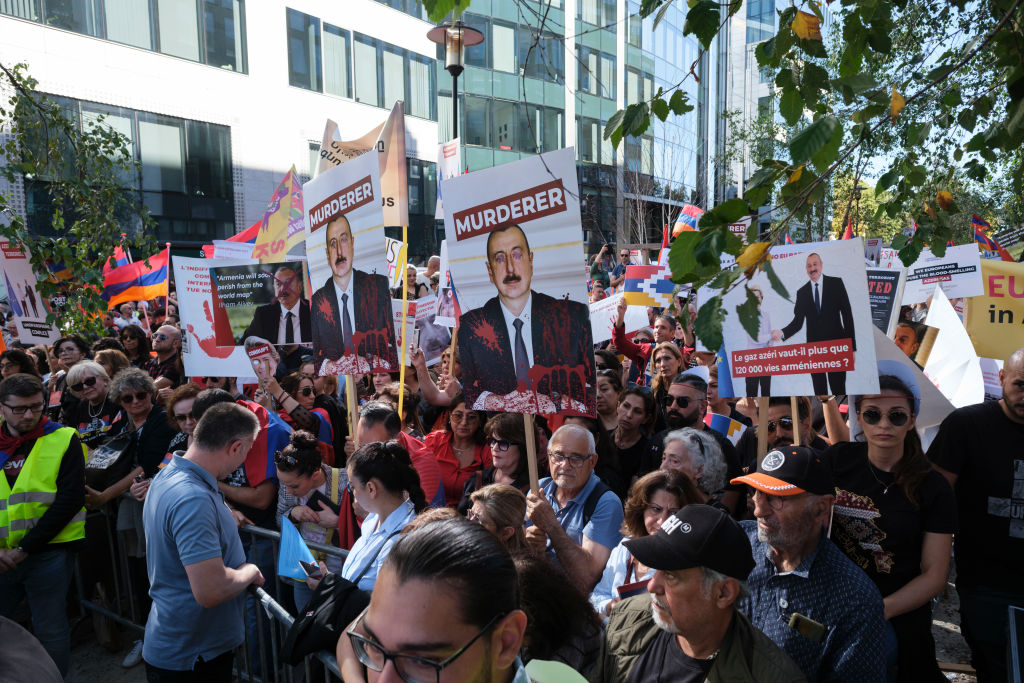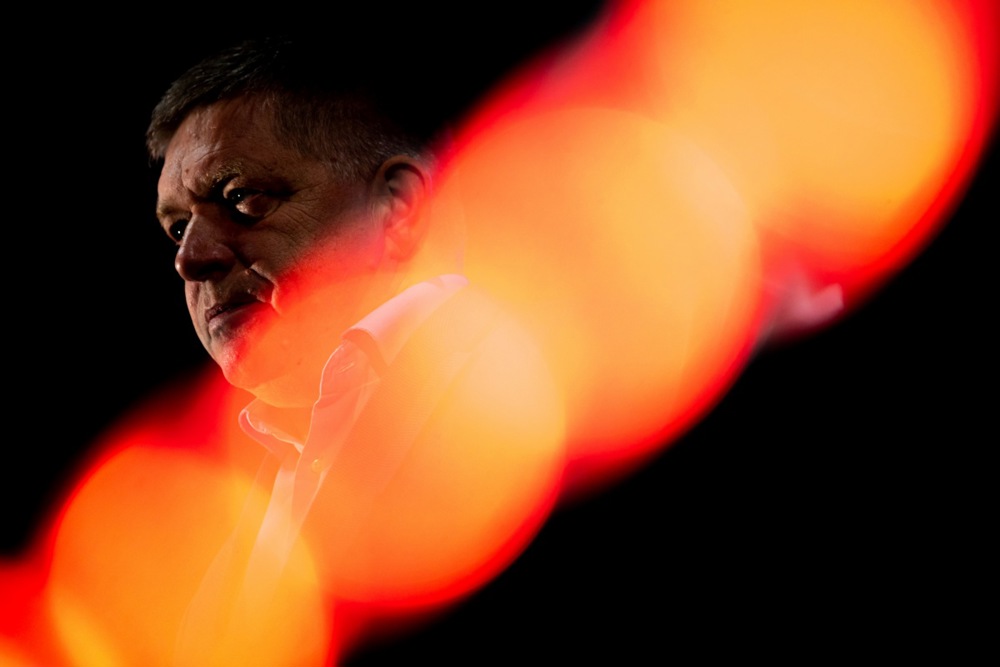The European hard-left has condemned European Union leaders’ support of Israel following the outbreak of hostilities between Israel and Palestinian Islamist organisation Hamas on October 7.
While most of the EU’s leadership has expressed solidarity with Israel following brutal attacks by Hamas, the issue is proving more divisive at national level.
Debate is raging in the French Parliament over the affair. While supporters of Israel accuse the Left of backing Hamas and terrorism, the Left says that is an unfair simplification.
France’s hard-left firebrand Jean-Luc Mélenchon defended himself on October 8 against accusations from French Prime Minister Élisabeth Borne, in which she said the Left’s “anti-Zionism …[was] sometimes a way of masking a kind of anti-Semitism”.
Mélenchon wrote on X: “Madame Borne is taking advantage of the war in the Middle East to wage her war against LFI [La France Insoumise – Mélenchon’s party]”.
Madame Borne profite de la guerre au Moyen-Orient pour mener sa guerre contre LFI. J'ai exprimé la position constante de notre pays depuis De Gaulle. Le ralliement de la Première ministre à un point de vue étranger est avéré si l'on se donne la peine de me lire. Ci-joint mon… https://t.co/IQiU02pyK8 pic.twitter.com/WRLcBkuOD4
— Jean-Luc Mélenchon (@JLMelenchon) October 8, 2023
He had originally written that “all the violence unleashed against Israel and in Gaza proves only one thing: violence only produces and reproduces itself”, before saying that France needed to promote a two-state solution for Israel in Palestine.
Other LFI members claimed: “France has turned a blind eye to colonisation and abuses in Palestine for too long”.
That prompted criticism from some left-wing politicians, referring to the LFI deputies as “the useful idiots of the Hamas terrorists”.
On the morning of October 7, the Islamist Hamas leadership of the Gaza Strip – a crowded coastal enclave inhabited by more than 2 million Palestinians – launched a surprise attack on Israel.
Several Israeli army bases and towns surrounding Gaza were captured. Claims and footage circulated on media purportedly showing Hamas killings and kidnappings of Israeli civilians and soldiers. That was accompanied by mass rocket attacks on major Israeli towns and cities including Tel-Aviv and Ashkelon
Numbers are contested but Israel claims more than 700 Israelis have been killed and over a 100 kidnapped, while Palestinians say at least 500 of its people are dead as a result of Israeli counter-strikes.
Soon after the outbreak of hostilities, much of the EU leadership swung behind Israel.
The Presidents of the European Commission, Council and Parliament issued condemnations of Hamas and the attack.
“It is terrorism in its most despicable form” said EC President Ursula von der Leyen.
On X she added: “Israel has the right to defend itself against such heinous attacks.” Her post was accompanied by pictures of the Israeli flag being projected on the EC’s headquarters in Brussels on the evening of October 7.
Today, Hamas terrorists have struck at the heart of Israel capturing and killing innocent women and children.
Israel has the right to defend itself – today and in the days to come.
The European Union stands with Israel. pic.twitter.com/qTngixfu78
— Ursula von der Leyen (@vonderleyen) October 7, 2023
Josep Borrell, the EU’s High Representative and de facto foreign minister, wrote that the “EU condemns in the strongest possible terms the multiple and indiscriminate attacks across Israel by Hamas and deeply deplores the loss of lives” before calling for “an immediate cessation of senseless attacks and violence”.
Other figures, particularly from the Left, have condemned the EU leadership’s support of Israel, which they claim is one-sided.
Irish MP for the left-wing Sinn Féin party Chris Andrews responded to von der Leyen writing that “the Irish people stand with Palestine”, although he was heavily criticised by many Irish citizens condemning his comments.
The Irish people stand with #Palestine ???? https://t.co/V7ItP5jijx
— Chris Andrews TD #stopthegenocide (@chrisandrews64) October 8, 2023
Prominent member of the Belgian Workers’ Party Charlie le Paige likewise responded to von der Leyen, asking: “How many times has the European Commission raised the Palestinian flag against the crimes and apartheid of the Israeli occupier?”
Following the Hamas attacks, Israeli Prime Minister Benjamin Netanyahu declared his country to be at war with group and the Gaza Strip.
Israel has reportedly mobilised more than 100,000 reservists and the Israel Defence Forces spokesman Jonathan Conricus stated that the aim of its operation will be to prevent Hamas from ever governing the Gaza strip again.
Many have expressed deep concern for inhabitants should Israel invade the built-up and densely populated enclave.
The conflict is dividing opinion on the ground in Europe, too. Reports have emerged of celebrations in major European cities over the Hamas offensive and even among recent migrant arrivals in a Greek asylum camp.
A number of European governments have announced intensified security measures for Jewish communities in their states, fearing domestic conflict and escalated anti-Semitism over the issue.





